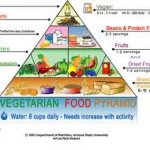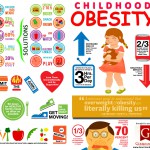By Eufemia Kontse, A class

(Source: Yahoo)
While some people can’t imagine a day without meat, others insist that a vegetarian or vegan lifestyle is the best way to enjoy food and stay healthy. Vegetarian lifestyles and veganism have slowly moved from fad status to healthy living in the Western world, embraced by millions of people interested in eating natural foods and foregoing questionable meat sources to get their daily protein. If you’re still on the fence about diving into earth and animal-friendly menus, consider the benefits of adopting the lifestyle before making the final decision. Here’s a look at just seventeen benefits of being a vegetarian:

1. Lower risk of lung and colorectal cancer. A diet filled with fruits, vegetables, and fibre can help reduce the risk of lung disease and related illnesses.
2. Prevention of Type 2 diabetes. Type 2 diabetes is becoming more common with the rise of obesity around the world, and vegetarian diets may even prevent it by including complex carbs and fibre that help the body manage insulin more efficiently.
3. Healthy skin. Diets rich in water-based and plant foods are a rich source of antioxidants and vitamins-ideal for healthier skin every season.
4. Chemical-free food. Meat-based diets take in animal cells and fats, along with chemicals and by products used on the animals during processing. This can include chemicals sprayed on the dead animal, preservatives, and other unnatural ingredients used for packaging and mass distribution.
5. Hormone-free eating. Fruits, vegetables, and soy products are never injected with growth hormones and other chemicals that may harm the human body.
6. Increased energy. With the body spending less time digesting animal protein, an energy boost is a nice side effect.
7. Lower blood pressure. Vegan and vegetarian diets can be naturally low in fat and sodium, helping reduce blood pressure and improve circulation instead.
8. Improved digestion. Plant-based foods and fresh fruits are rich in fibre, improving the digestion and elimination process. High fibre diets have also been linked to preventing certain types of cancer.
9. Lowered risk of diabetes. Steady blood sugar is easily achieved with a nutritious vegetarian diet, and the cycle of blood sugar peaks and crashes is almost eliminated without the meat and unhealthy carb combinations.
10. Lower grocery shopping bills. By shopping the perimeter of the grocery store and stocking up on high-fibre, highly nutritious food, vegetarians can eliminate almost 25% of their food budgets without pounds of meat on the bill. In some cases this balances out if the vegetarian shopper chooses to buy premium veg brands and gourmet ingredients, but average costs do tend to be much lower per trip.
11. Toxin-free food. Some studies suggest that when animals experience fear, the adrenaline rush causes a release of epinephrine, steroids, and other stress hormones into the bloodstream. These are then ingested by the meat eater, presenting a range of toxins that can accumulate in the blood.
12. Healthy amino acids. Plant-based proteins (e.g. soy) can be an excellent source of amino acids that help with protein assimilation and metabolism.
13. Low or no saturated fat. Vegetarian menus typically use all-natural oils and cooking methods to enhance flavour. This is free of unhealthy saturated fat which can lead to a variety of heart problems and cardiovascular disease.
14. Increased life span. With the body in harmony and free of harmful toxins and chemical build-up, vegetarians may live longer than their fellow meat eaters. According to William Castelli, MD, director f or the Farmingham Heart Study, vegetarians can live up to 3-6 years longer than meat eaters.
15. Appreciation for simple flavours. After eliminating meat from the diet, it becomes much easier to differentiate flavours and get a real taste for fruits and vegetables. Palettes can become much more sensitive to different flavours, textures, and combinations.
16. Healthy cholesterol levels. Without unhealthy meat and fat sources in the diet, cholesterol levels of vegetarians can be considerably lower and easily fall into a healthy range.
17. Lower risk of cancer. With a diet rich in antioxidants, phytochemical, and vitamins, vegetarians naturally lower their risk of cancer and other diseases. Meat eaters, especially those that indulge in fatty meats are at a much higher risk of cancer.
From eating more nutritious food and lowering the risk of cancer, the vegetarian lifestyle offers many advantages over a meat-based diet. Dining and grocery options for vegetarians are improving as more people embrace this lifestyle for the long-term; are you one of them?















